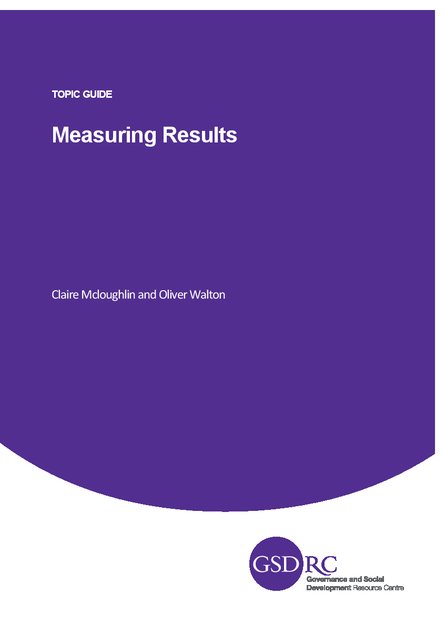
How can the impact of governance and social development programmes be assessed with a view to improving their efficiency and effectiveness? What particular challenges are involved in monitoring and evaluating development interventions, and how can these be addressed? How can the ‘value for money’ of a particular intervention be determined? Monitoring and evaluation (M&E) is vital to ensuring that lessons are learned in terms of what works, what does not, and why. M&E serves two main functions: 1) it builds accountability by demonstrating good use of public funds; and 2) it supports learning by contributing to knowledge about how and why programmes lead to intended (or unintended) outcomes.
There can sometimes be a tension between these functions. This guide introduces some of the core debates and considerations for development practitioners involved in designing and managing M&E activities. It introduces key tools and approaches, provides case studies of applying different methodological approaches, and presents lessons learned from international experience of M&E in a range of developing country contexts. While the guide focuses on M&E for governance and social development programmes, it has relevance for all programmes.